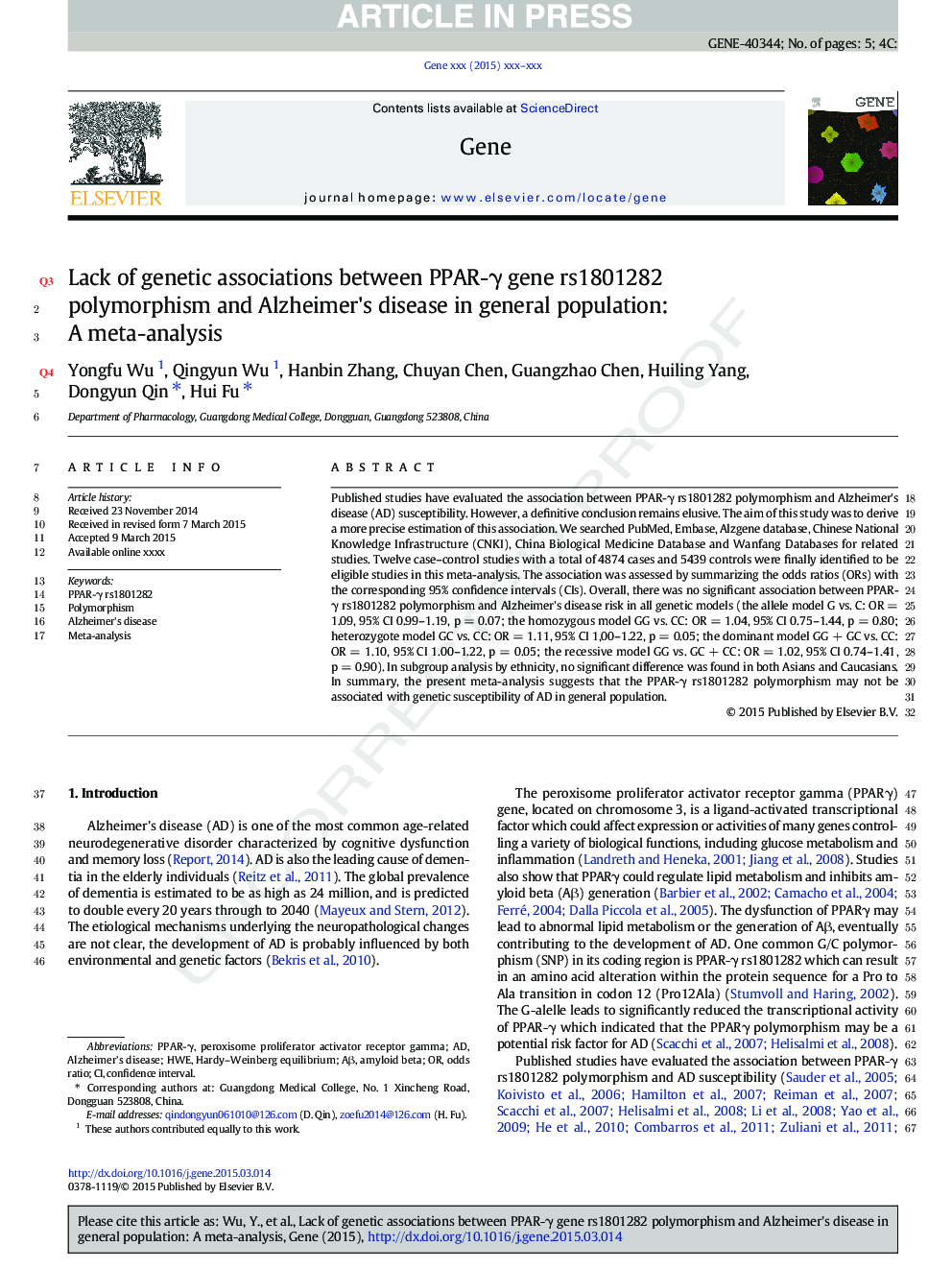| Article ID | Journal | Published Year | Pages | File Type |
|---|---|---|---|---|
| 5905454 | Gene | 2015 | 5 Pages |
Abstract
Published studies have evaluated the association between PPAR-γ rs1801282 polymorphism and Alzheimer's disease (AD) susceptibility. However, a definitive conclusion remains elusive. The aim of this study was to derive a more precise estimation of this association. We searched PubMed, Embase, Alzgene database, Chinese National Knowledge Infrastructure (CNKI), China Biological Medicine Database and Wanfang Databases for related studies. Twelve case-control studies with a total of 4874 cases and 5439 controls were finally identified to be eligible studies in this meta-analysis. The association was assessed by summarizing the odds ratios (ORs) with the corresponding 95% confidence intervals (CIs). Overall, there was no significant association between PPAR-γ rs1801282 polymorphism and Alzheimer's disease risk in all genetic models (the allele model G vs. C: OR = 1.09, 95% CI 0.99-1.19, p = 0.07; the homozygous model GG vs. CC: OR = 1.04, 95% CI 0.75-1.44, p = 0.80; heterozygote model GC vs. CC: OR = 1.11, 95% CI 1,00-1.22, p = 0.05; the dominant model GG + GC vs. CC: OR = 1.10, 95% CI 1.00-1.22, p = 0.05; the recessive model GG vs. GC + CC: OR = 1.02, 95% CI 0.74-1.41, p = 0.90). In subgroup analysis by ethnicity, no significant difference was found in both Asians and Caucasians. In summary, the present meta-analysis suggests that the PPAR-γ rs1801282 polymorphism may not be associated with genetic susceptibility of AD in general population.
Keywords
Related Topics
Life Sciences
Biochemistry, Genetics and Molecular Biology
Genetics
Authors
Yongfu Wu, Qingyun Wu, Hanbin Zhang, Chuyan Chen, Guangzhao Chen, Huiling Yang, Dongyun Qin, Hui Fu,
